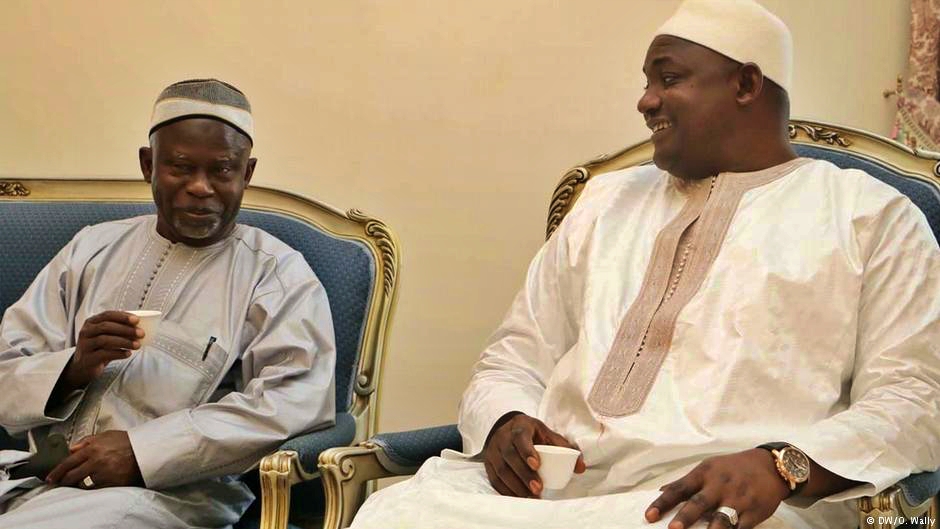Gambiaj.com – (BANJUL, The Gambia) – In moments of national tension, the power of our words becomes clearer—and more dangerous. A single sentence, spoken in haste or in wisdom, can ignite conflict or calm rising tempers. Every word we speak is a seed: some take root in hope, others in hurt. Long after the moment has passed, our words continue to live in the hearts of those who heard them.
As The Gambia moves toward the 2026 elections, political rhetoric is sharpening. Words that once stayed within party halls now travel instantly through rallies, WhatsApp groups, radio talk shows, and neighborhood conversations.
In such a charged atmosphere, even one careless remark can inflame supporters or deepen mistrust. The tone we set today will shape the peace we enjoy tomorrow.
The legacy of the TRRC still weighs heavily on our national conscience. Many citizens are impatient; others feel unheard. This fragile period demands speech guided by truth and restraint. A reckless public statement can reopen wounds that the country is still trying to heal.
Our digital spaces have become battlegrounds where rumors travel faster than facts. WhatsApp audios, Facebook posts, and short video clips can destroy reputations in minutes. Increasingly, people speak not to build but to provoke.
If we do not reclaim honesty and discipline in our online dialogue, digital hostility will erode the cohesion that holds us together. Young people, now the most active participants online, must especially recognize the weight their words carry.
Within public institutions, the political season has made speech more delicate. Colleagues who once worked with quiet ease now speak cautiously, aware that harmless comments may be misinterpreted as political alignment.
Leaders must therefore choose words that preserve dignity, calm anxieties, and protect institutional neutrality.
Economic hardship has made speech more combustible. As the cost of living rises, frustrations rise alongside it. People who feel overwhelmed often express their anger sharply. In such a climate, empathy in speech becomes as important as policy. A nation under stress needs leaders—and citizens—who speak with care.
Radio talk shows and call-in programs, long regarded as the pulse of public opinion, have also become spaces where emotion sometimes overtakes truth.
An unverified claim aired in the heat of debate can send the country into needless alarm. Presenters and callers alike must remember that their words shape the national mood.
At the community level, conflicts over land, alkaloship, and political loyalties often begin with careless words—an argument at the bantaba, a rumor repeated without thought, or an accusation voiced in anger. Peace at the national level begins with responsible speech in our smallest social circles.
Our earliest experiences with speech also shape who we become. A person raised where words were harsh—where criticism was constant and affection was scarce—often carries that tone into adulthood.
Bitter words produce bitter spirits; aggressive speech produces defensive hearts. By contrast, those raised in environments of encouragement, patience, and gentle correction tend to grow into adults who speak with confidence rather than hostility.
No one chooses the words they heard growing up, but every adult chooses the words they pass on. As a nation, we must break cycles of verbal harm and cultivate speech that nurtures resilience, dignity, and peace.
Religious leaders, too, bear immense responsibility. Their influence extends across mosques, churches, radios, and social media. Most use that influence wisely, but some have adopted tones that strain our unity. At a time when faith is central to our identity, religious rhetoric must build bridges, not barriers.
Our civic responsibility and our faith-based responsibility are not separate; both call for humility, truthfulness, and restraint.
Words can wound, but they can also repair.
A sincere “I am sorry” is not just courtesy; it is an act of healing.
The Holy Qur’an reminds us of Prophet Jonah (Yunus), who, overwhelmed by darkness and regret, cried out, “There is no god but You; glory be to You. Indeed, I have been among the wrongdoers.” His humility moved Allah to forgive him.
Istighfar teaches us the discipline of acknowledging harm and correcting ourselves. When we regularly say “Astaghfirullah,” we train our tongues toward humility instead of arrogance and toward truth instead of impulse.
Gratitude also shapes the way we speak. The Qur’an promises, “If you are grateful, I will surely increase you.” Saying “Alhamdulillah” softens the heart. Thanking others for kindness, advice, or simple decency elevates our interactions. A grateful person speaks differently—less harshly, less enviously, and less dismissively.
The months ahead will test our collective maturity. Elections do not begin at the ballot box; they begin in how we speak to one another long before campaigning begins.
The Gambia’s progress will depend not only on who wins, but on how we all speak and behave before, during, and after the polls. Leadership begins not with the loudest voice, but with the calmest conscience.
If every word is a seed, then may we choose to plant only what nurtures our nation: truth, compassion, and restraint.
A peaceful future will be shaped not by noise, but by the quiet courage of responsible speech.











2 Responses
Amen to ‘may we choose to plant only what nurtures our nation’.
Veritable food for thought! Calmer heads should prevail if we are to escape the quagmire that our beloved motherland is sinking in. We need to reawaken in our selves the values of our forefathers so that we can guarantee a better future for our children.